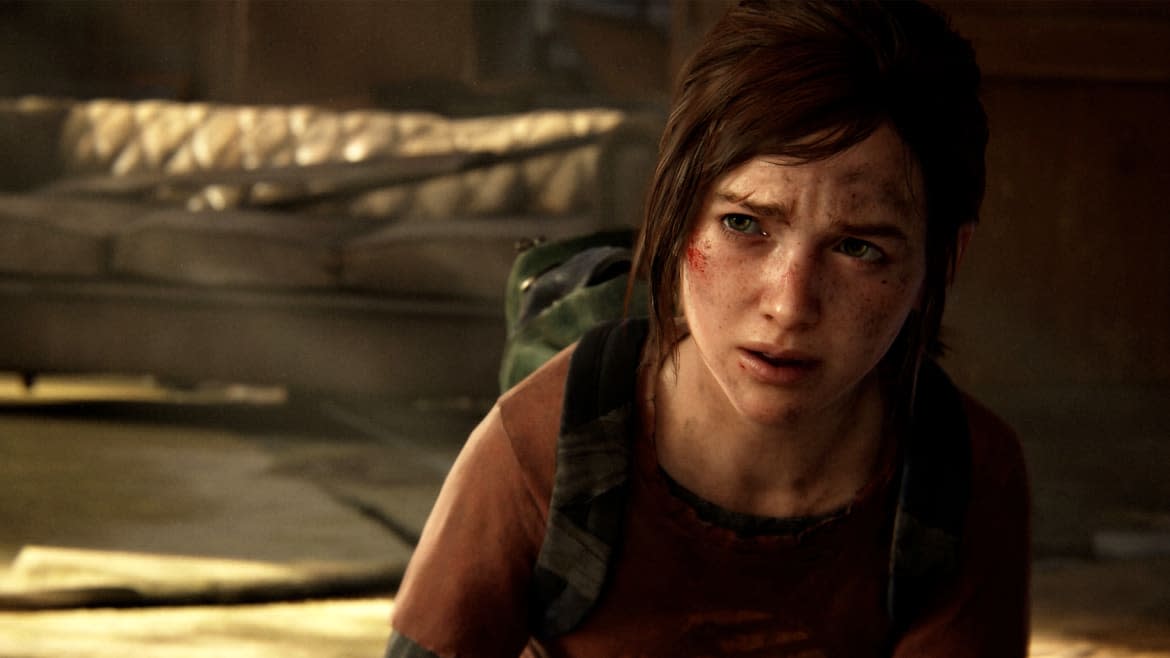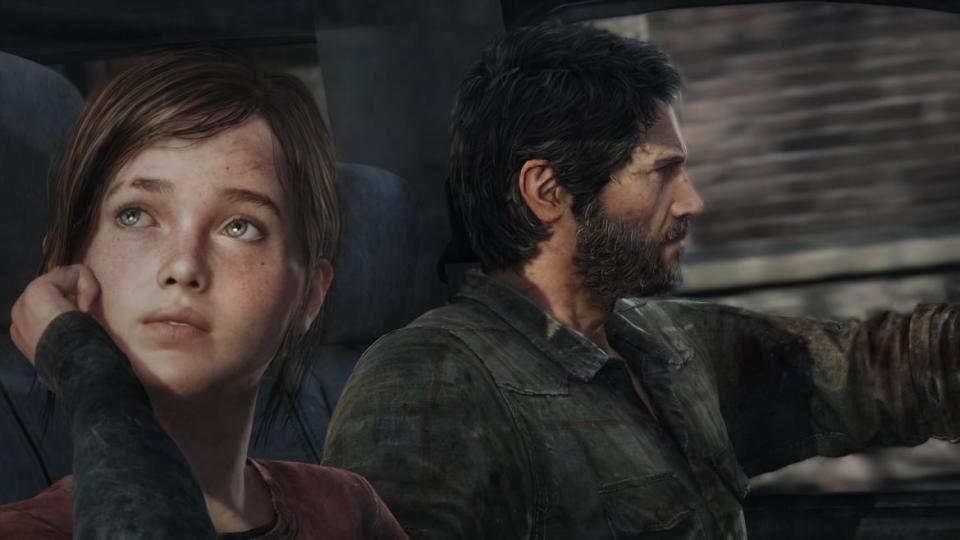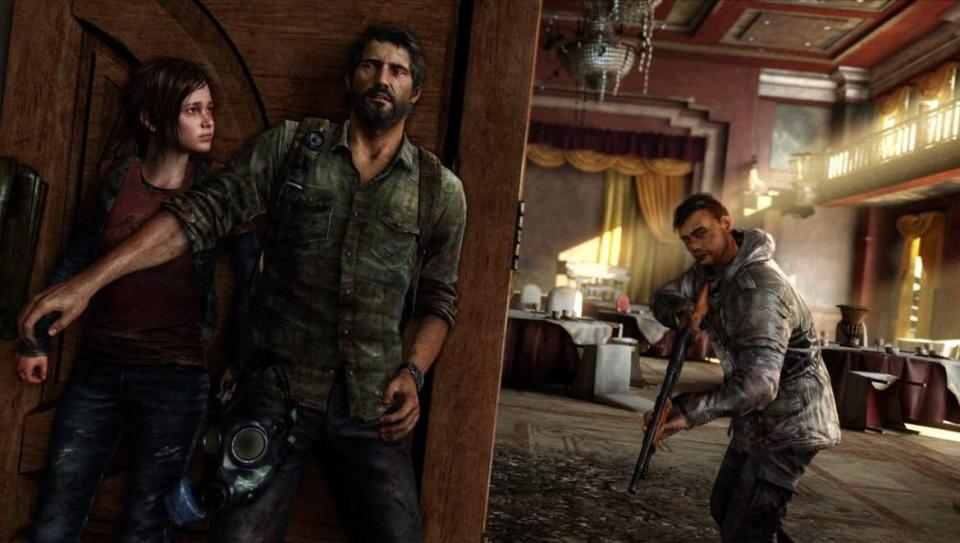Why ‘The Last of Us’ Is the Video Game That Changed My Life

There is nothing quite like the first 15 minutes of Naughty Dog’s video game masterpiece The Last of Us. It’s a visually stunning, action-packed, and heart-breaking opening: running through the streets of Austin, Texas, as you try to escape the terrifying first night of the zombie outbreak.
The first time I played the game, I was hooked by the end of that 15-minute section. And not only was I already in love with the game—but my entire relationship to gaming was forever changed too.
I’m a dramatic person, but I’m not being hyperbolic here. There are very few pieces of media that have irrevocably changed my life in such a meaningful way. There was the first Spider-Man movie when I was a kid, Buffy the Vampire Slayer when I was a teenager, and The Last of Us, which I first discovered just a few years ago.
Tom Holland, Andrew Garfield, and Tobey Maguire Can Finally Talk About ‘Spider-Man: No Way Home’
And the wildest part is that I almost didn’t play the game. I’m so grateful that I did—and now, thanks to The Last of Us Part 1, the newly released remake of the original 2013 game, I am reliving the joy of that unforgettable first time yet again.
Back in February 2020, just before a worldwide pandemic began, I decided to splurge on a PlayStation 4. I was working far too much, and I thought it would be a fun way to force myself to actually take a break.
As I looked up prices and bundles for the PS4, however, a chilling realization came to me—I had not owned a console in over 10 years.
As a kid I was a big gamer. I mainly gravitated to sports games on my PC (shoutout to the Backyard Sports series!), and I also had a few consoles. I grew up with a Nintendo 64, and I still have fond flashbacks of my cousins and me packed into a small room in my grandmother’s house playing Donkey Kong 64. I eventually upgraded to a GameCube (RIP, I miss you) and played the absolute hell out of it, especially The Legend of Zelda: The Wind Waker. I was also the proud owner of a GameBoy Advance and a Nintendo DS.
Even though I never really fell out of love with gaming—any chance I got, I would be playing anything and everything on a friend's Xbox or PlayStation—I just never decided to invest in a console of my own after high school. Perhaps I got too caught up in the rat race of life to consider how much better things could be with gaming back in my life. Luckily, I came to this realization sooner rather than later.
I settled on a PS4 bundle that included three games: Horizon Zero Dawn, God of War, and The Last of Us. I had been planning on playing mostly sports games and knew next to nothing about any of the games included, but hey, it was a great deal, so I went for it. And in the beginning, I really did mostly play sports games—but that lasted for only about a month.
I was so glad to have that PS4 to spend my time with when the pandemic fully started. That’s also when I started to finally branch out from the sports games—I finally played, completed, and loved Insomniac's Spider-Man game. It threw me back to my first favorite film, and I felt like it was 2002 all over again.
I was looking for the next big thrill after Spider-Man, and my gamer friends started begging me to play The Last of Us. Their recommendation came with the warning that I would love it, so be careful—I may not be able to stop playing.

I booted the game up and watched the opening cinematic with intense focus, engrossed in every second of Joel (played and voiced by the great Troy Baker) and his daughter Sarah’s (Hana Hayes) conversation. When I finally took the controls, my hands were a bit shaky. I knew bad things were going down—after all, I knew this was a game about a zombie outbreak.
The way The Last of Us fosters dread and terror within the first few explorable minutes is, honestly, incredible. I had never experienced anything like it. As a player, you feel like you are in the room with the characters—an effect that is constant throughout the entirety of the game. As I started to fully take over the controls and run through the streets of Austin as Joel with Sarah in his arms, my heart started racing. It was mainly because I didn't want to die this early on in the game, but also because it was very stressful. Then, when I got to the final cutscene of the opening sequence, my heart broke. It turned out that Sarah would not be joining us on the rest of this journey.
I distinctly remember texting my friends “WTF” as the opening credits began to play, and I tried to control my overwhelming emotions about the loss of Sarah. All I got in return from them was, “Welcome to The Last of Us.” Through my tears, I knew they were right: I was forever hooked by those 15 minutes.
After those first moments sucked me in, I couldn’t stop playing. And when I finally met Ellie (played and voiced by the phenomenal Ashley Johnson), the full plot of the game came into view. It’s a simple premise really: Joel, a smuggler, has to bring 14-year-old Ellie, who is immune to the fungus that is making everyone a zombie, across the country to the Fireflies, the group that could potentially make a cure for the affliction. But the game and the emotions it evokes is anything but simple. I felt every emotion you could think of, but mostly I felt happiness. Not necessarily because the game is happy, but because I love being so immersed and connected to the story. It felt good to find a new piece of art to be obsessed with.
I tore through the game in five days. I scrambled away from bloaters (the worst) in Bill’s Town, one of my favorite chapters of the game. I cried as Sam and Henry—pals that Joel and Ellie meet in Pittsburgh and travel with for a few stressful chapters—helped our heroes and then perished to the unforgiving word that is The Last of Us (and honestly, just society). I cursed out cannibal cult leader David (a terrifying Nolan North) as he terrorized Ellie. And I cheered for Joel as he wiped out the duplicitous Fireflies, in order to save Ellie’s life.
The intensity of the experience—from the game’s opening throughout the rest of its 16-ish hours—completely changed how I looked at video games. No longer did I just think of them as only something fun and distracting to do at the end of a long day. I realized that there is so much artistry to the design and the storytelling. The Last of Us isn’t just the best video game I’ve played; it’s also one of the best narrative experiences I’ve ever had.
I love film and television, because it can suck you into a world, make you empathize with characters and discover new parts of yourself. But, for some unknown reason, I never thought video games would have this impact on me. The Last of Us proved me so very wrong. I have never felt more at home in a fantasy world than I did in The Last of Us, which is strange considering it is infested with bloodthirsty zombies.

There is a level of empathy and emotion evoked in video games that movies and television just cannot emulate. And it all comes down to the fact that for several hours I get to actually be in that person's shoes, control their movements and, on occasion, make decisions for them. It’s a connection like no other.
That feeling of connection is what really changed it all for me. The immersive experience games like The Last of Us provides is like no other. And that goes for so many of the games I have played since. I loved learning Norse mythology as I floated around in a row boat with Kratos and Atreus in God of War. I savored every minute I got to fight machines and save civilization with Aloy in Horizon Zero Dawn. And I loved every adventure I went on with Nathan Drake in the Uncharted games.
But even after playing all these other games (and there have been many more too), I have never connected to a game as much as The Last of Us—and, just as importantly, to a character more than I did with Ellie.
I am fairly certain that someone spilled the beans and informed me before I even started playing The Last of Us that Ellie is gay. Honestly, good on them, because that is the fastest way to get me to watch or play anything. Representation matters! I often tend to connect with queer characters in every medium of art—take Willow Rosenberg (Alyson Hannigan) for example. That character and her coming-out arc were big reasons why Buffy was such a formative show for me.
However, there was something even more meaningful to me about watching Ellie’s arc as a character. Maybe it was her sexuality just was a piece of her identity, not what defined her. Maybe it was the fact that she had been through so many horrible things in her life, yet still managed to crack a joke. Or maybe it was the fact that I actually got to play as this character I empathize with so much.
As more layers of Ellie’s story gets peeled back in subsequent games—the Left Behind expansion (a two-hour game that fills in some gaps on Ellie’s backstory) and 2020’s The Last of Us Part II— I connected more deeply with the character. It especially moved me when she gets an adorable love story in the sequel. The importance of a queer romance being so front-and-center in a hugely popular video game was never lost on me. I knew in an instant how seeing Ellie’s character development would immensely help so many queer people in the world. I cannot stress enough how validating it is to see yourself depicted on screen. It’s often life-saving for many queer folks.
Meet the OnlyShans, the Friendliest LGBTQ Gaming Community
There are a lot of reasons why I love The Last of Us. First and foremost, I love good storytelling and this is peak storytelling. I love that it doesn’t shy away from highlighting the ugliest parts of humanity. I love that it embraces the gray areas of life and makes you live in them and see them from different perspectives. I love that it makes me question everything and everyone. I love that it’s so empathetic toward its characters. But, most importantly, I love that it opened up my eyes to just how powerful narratives in video games can be.
This weekend, when I started playing the remake of the game that changed it all for me, I felt myriad emotions—excitement, glee, and even some sadness. But, mostly I felt warm and fuzzy. The Last of Us came into my life when we were all on lockdown from a pandemic, albeit thankfully not as zombie-like as the one in the game. It was a hard time for a lot of us, including me. Getting to experience it now in such a different stage of my life—and way deeper into my love of games—is a gift.
Get the Daily Beast's biggest scoops and scandals delivered right to your inbox. Sign up now.
Stay informed and gain unlimited access to the Daily Beast's unmatched reporting. Subscribe now.

